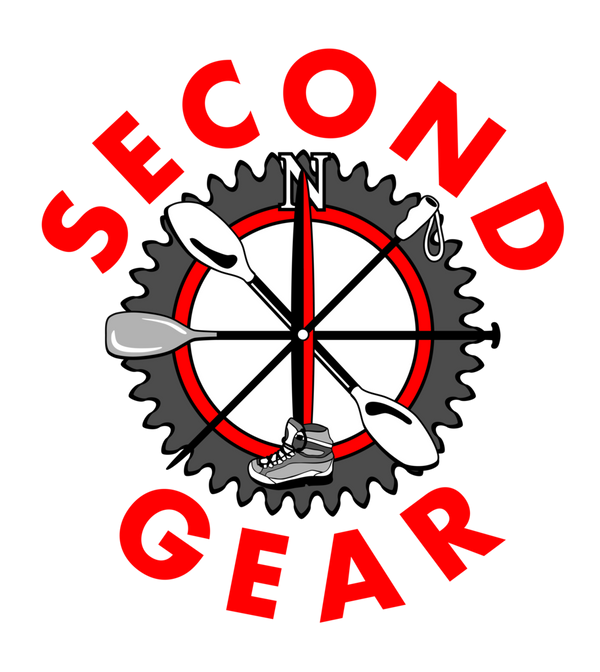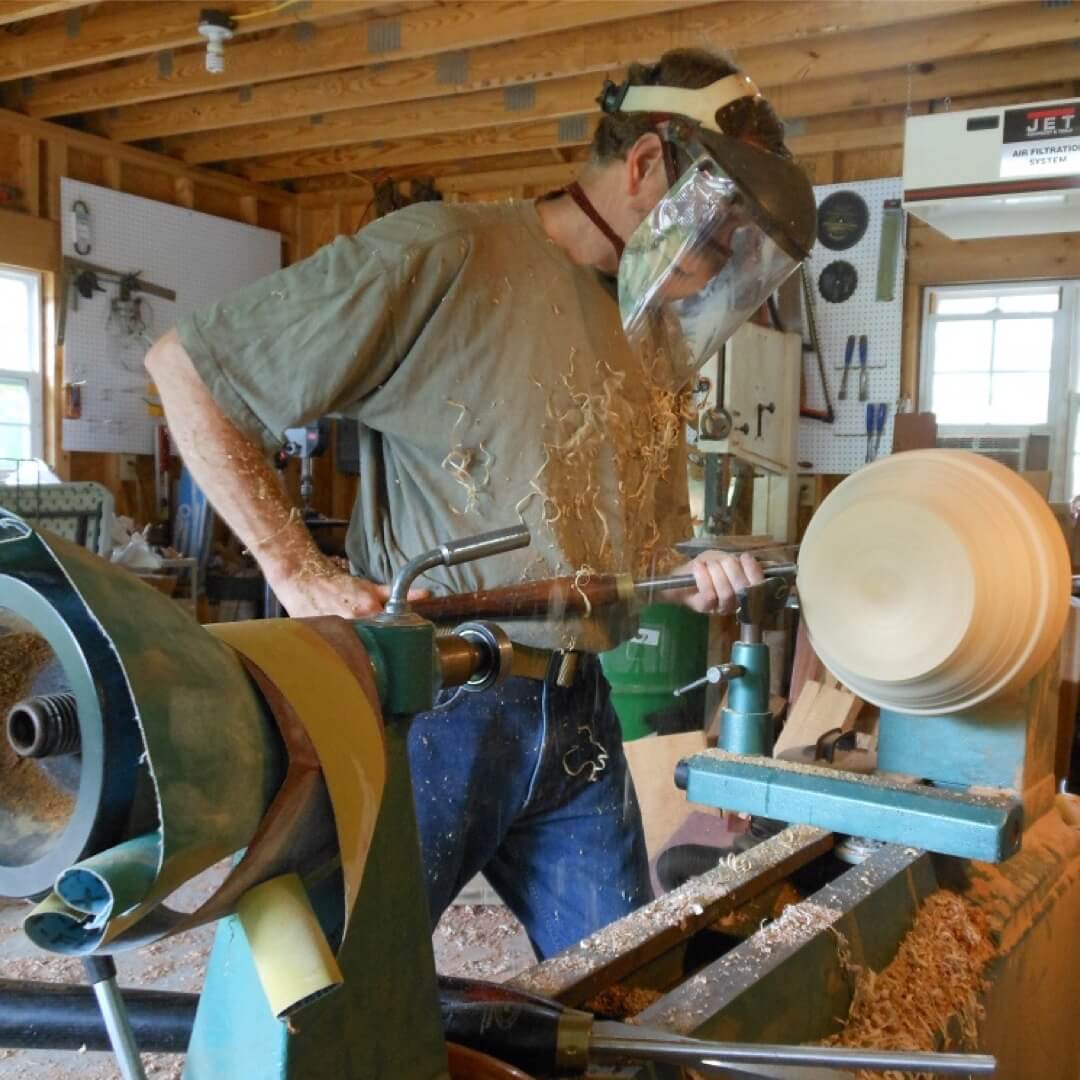The rustic wood framed compasses and pens on display at Second Gear are what David Bowers calls “useful art”. The pieces are made one-by-one in his Spartanburg, SC workshop where he’s been making not only pragmatic gadgets from wood, but pieces of fine art too.
The 63-year-old grew up in Morganton and began his career designing and engineering furniture. However, it was on a trip to Tasmania in 1996 that he stumbled on a passion for wood turning.
“There’s a joke that there are more lathes than people in Tasmania. It’s a Mecca for woodturning,” says Bowers. “I became fascinated with it.”
Within a week of his return he installed a lathe in his shop and learned the techniques of wood turning from videos and books he borrowed from the library.
The craft of craving wood using hand tools and lathes also has a deep connection to North Carolina. Woodturners were among the furniture industry’s most skilled and highest paid workers. However, most of the craftsmen were eventually replaced by automated lathes as production expanded.
A similar fate was in store for most of North Carolina’s furniture making workforce. By the early 1990s as global competition intensified, Bowers realized the industry was in jeopardy. “I figured it wouldn’t last much longer as skilled workers on the floor were displaced with inexperienced labor to cut costs,” he said.
He was right. Within a decade furniture production in North Carolina had evaporated. By then, however, he had split from the furniture business to become a full-time artist.
While Bowers primary platform for selling his sculptures, bowls, and platters are fine arts shows throughout the region, stocking Second Gear and other shops with compasses and other pocket sized knick-knacks has become a lucrative aspect of his business.
And despite the demand they’re not widgets mindlessly replicated on an assembly line.
“When I first get a piece of wood I’ll look to see what I can envision. Unlike clay or metal, it’s not a static medium; it’s a living tissue so no two chunks are the same.” says Bowers.
“I still put individual care and thought into each piece. That’s the essence of being a craftsman.”
By Jack Igelman
Wooden Compasses by David Bowers
Wooden Magnifying Glasses by David Bowers
David Bowers Canoeing




